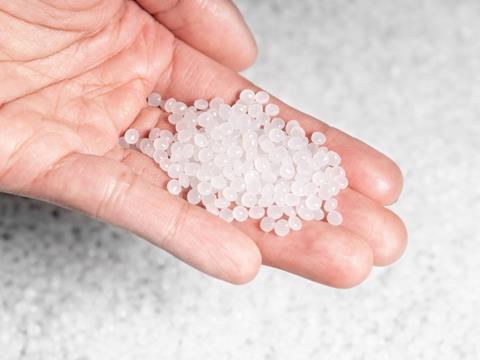
A product offtake agreement between Mura Technology and Neste is set to convert products from Mura’s Teesside commercial-scale advanced plastic recycling plant into feedstock for new plastic production, a move hoped to help phase out fossil resources.
Neste expects to convert ISCC PLUS accredited products from Mura’s first commercial-scale site in the UK – which is scheduled to begin its operations in mid-2024 – into feedstock for new plastic production.
Mura Technology’s HydroPRS process uses supercritical water, or water under elevated pressure and temperature, to convert plastic waste into hydrocarbons; these are then used to manufacture recycled plastics. This process is said to differentiate it from pyrolysis and other advanced recycling processes by facilitating the ‘efficient and scalable’ conversion of plastic waste into new, ‘virgin-quality’ products.
As such, it is thought to be compatible with contaminated and mixed plastics like flexible and rigid food packaging and unlock infinite recycling for plastic packaging. It hopes to drive down the reliance on fossil resources in plastic production processes and improve circularity within the plastics industry.
According to a technical report conducted by the European Commission’s Joint Research Centre in 2023, Mura Technology’s process complements traditional mechanical recycling, offers a 50% lower carbon footprint than two pyrolysis technologies, and helps customers reach their net zero targets.
“We are delighted to be working with Neste to advance the transition to a circular plastic economy,” comments Dr. Steve Mahon, CEO of Mura Technology. “Our technology, soon to be deployed in our first-of-its-kind UK facility, has unlocked new value in plastic waste streams previously considered to be unrecyclable.
“We look forward to working with the polymers industry around the world as we expand across the US, Europe, and Asia.”
Heikki Färkkilä, Vice President Chemical Recycling at Neste, adds: “Neste welcomes the ambitions and progress made by Mura and is looking forward to future cooperation between the two companies.
“At Neste, we will need increasing amounts of product derived from plastic waste and want to enable investments into the sector by providing a flexible offtake for our partners’ developing capacity. Mura is helping provide scale to process large volumes of waste plastics into circular feedstocks to meet this demand.”
Mura’s Teesside facility opened in October 2023, at which point its first offtake partners were expected to receive their first delivery of recycled hydrocarbon products in early 2024.
Another development in advanced recycling saw Swedish Plastic Recycling open its Site Zero plant in November 2023. Claiming to recycle all kinds of plastic packaging without emitting CO2, the plant seeks to introduce a ‘new era’ for the plastics recycling process.
LyondellBasell has also pursued the conversion of plastic waste into feedstock, from making a final investment decision to build an industrial-scale catalytic advanced recycling demonstration plant for its proprietary MoReTec technology to acquiring a 50% stake in De Paauw Sustainable Resources holding company, Rodepa Vastgoed B.V.
If you liked this story, you might also enjoy:
The Brief: How viable is biorecycling for plastics?
Report: How the top brands are progressing on packaging sustainability
The Brief: Using ocean-bound plastic in packaging – how, why and should we?














No comments yet